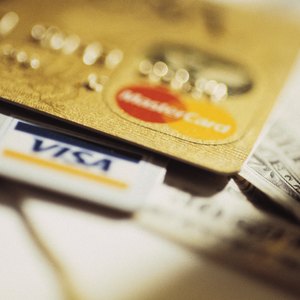
Every bank establishes its own policies for verifying the information contained in a credit card application, but the process almost always requires a credit check. If you apply for a credit card with a high limit, you might have to go through underwriting, a process banks use to verify the information contained in your application and assess your credit risk. Underwriters have several tools available to determine whether you'll be approved.
Verifying Basic Personal Information
You'll have to provide your name and address on your application, and will almost always have to provide your Social Security number and information such as your driver's license number. The credit card company will check the information against credit reports and public records to ensure you're the person you say you are. If you provide a driver's license number for one person and a Social Security number for another, for example, your application may be declined or even flagged as fraudulent.
Bank Accounts and Assets
Your bank accounts and property such as cars, expensive jewelry or a home can provide important clues about your financial status. Your bank may ask about your assets, and may then verify that you actually have these assets by checking your bank accounts and verifying loans for cars and a home through your credit report.
Employment Income
If you're required to provide information about your income, your bank has several ways of verifying this information. It might request copies of canceled checks or pay stubs. If you are self-employed or the bank wants more information, it may request tax returns from the past two or three years. Consequently, underreporting your income on your taxes can decrease your access to credit.
Credit History
Your credit history doesn't provide direct information about your income, but it can be a way to check whether you've listed all of your current credit accounts. It can also provide a more complete picture of your financial status. For example, if you have a high income but many credit accounts upon which you're only making minimum payments, you are a greater risk to the bank.
References
Writer Bio
Van Thompson is an attorney and writer. A former martial arts instructor, he holds bachelor's degrees in music and computer science from Westchester University, and a juris doctor from Georgia State University. He is the recipient of numerous writing awards, including a 2009 CALI Legal Writing Award.

